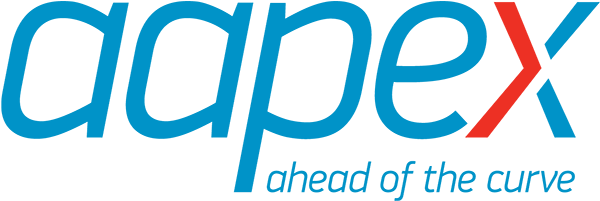The Latest On U.S. – China Trade
Tuesday, June 28, 2022
The Latest on U.S. – China Trade
By Angela Chiang, director, International Affairs, Auto Care Association

The automotive aftermarket industry has been heavily impacted by the U.S.-China trade war. While it is important to develop a comprehensive strategy for the U.S.-China trade relationship that supports U.S. workers, the Section 301 tariffs have also caused severe economic harm to U.S. businesses struggling with supply chain uncertainty and U.S. consumers facing increased repair costs.
Below is a summary of some of the key activities in Washington that may impact the future of the Section 301 tariffs.
Adjusting Section 301 China Tariffs to Ease Inflation
In recent weeks, senior officials of the Biden administration have publicly weighed in on adjusting the Section 301 tariffs to mitigate inflation, which hit a 40-year high of 8.6% in May with rising gas, housing and food prices as the largest contributors.

U.S. Treasury Secretary Janet Yellen shared recently that the tariffs on imports from China “impose more harm on consumers and businesses” which accomplish nothing on issues relating to China and that the administration is looking to “reconfigure those tariffs in a way that would be more strategic.”
At the same time, the Administration appears divided on the issue, with U.S. Trade Representative Katherine Tai and other officials warning that inflation is a complicated issue and requires a “thoughtful, strategic, deliberate” approach when managing the U.S.-China trade relationship.
While rolling back tariffs can potentially address inflation and lower consumer prices, some in the Administration are saying that it is difficult to say whether or not companies will pass down the tariffs savings or how quickly Americans will see inflation relief.
USTR Four-Year Review
The Office of the U.S. Trade Representative (USTR) issued a notice on May 3 commencing the required statutory process associated with the four-year anniversaries of the Section 301 tariffs, of which one outcome could be the termination of the tariff actions.
The first step in the four-year review process is notifying representatives of domestic industries which benefit from the trade actions of the opportunity to request continuation of the tariff actions. As of late June 2022, a number of requests for continuation have been filed for List 1 and List 2. Therefore, USTR will keep the tariff action in place while proceeding to the next phase of the review process, which will include an opportunity for all interested stakeholders to provide comments.
As part of the review process, USTR will consider the effectiveness of the action in achieving the objectives of Section 301, other actions that could be taken, and the effects of such actions on the United States economy, including consumers. USTR is expected to announce the same process for Section 301 List 3 and List 4A, which went into effect on Sept. 24, 2018 and Sept. 1, 2019.
Comprehensive Tariff Exclusion Process
In May 2022, Congress held its first conference committee meeting to reconcile the differences between the Senate’s United States Innovation and Competition Act (USICA) (S. 1260) and the House of Representative’s America Creating Opportunities, Pre-Eminence in Technology, and Economic Strength (COMPETES) Act (H.R. 4521).
Congress is weighing language related to Section 301 tariff exclusions that was included in USICA requiring USTR to implement a new comprehensive and transparent product exclusion that outlines specific criteria for USTR to consider in determining whether to grant an exclusion.
Key Action Items That You Can Take
- In order to make sure that the Auto Care Association and the Automotive Aftermarket Suppliers Association (AASA) can effectively represent your interests as part of the USTR evaluation of the Section 301 tariffs, please complete this brief Section 301 tariffs survey.
- Ensure that your company’s views are considered by submitting comments to USTR once the second phase of the four-year review process opens.
- Meet your elected official in your facility or their office to ensure that Congress understands the impact of the tariffs on your business and the industry.
While tariffs continue to be a concern for the aftermarket alongside an impacted supply chain, Auto Care Association and AASA are working on behalf of the industry to request USTR to grant requests for auto parts that the industry has difficulty sourcing from other countries. AAPEX 2022 is a critical place where automotive aftermarket companies can find solutions to manufacturing challenges and re-source or re-develop their supply chain logistics.
June 28, 2022
